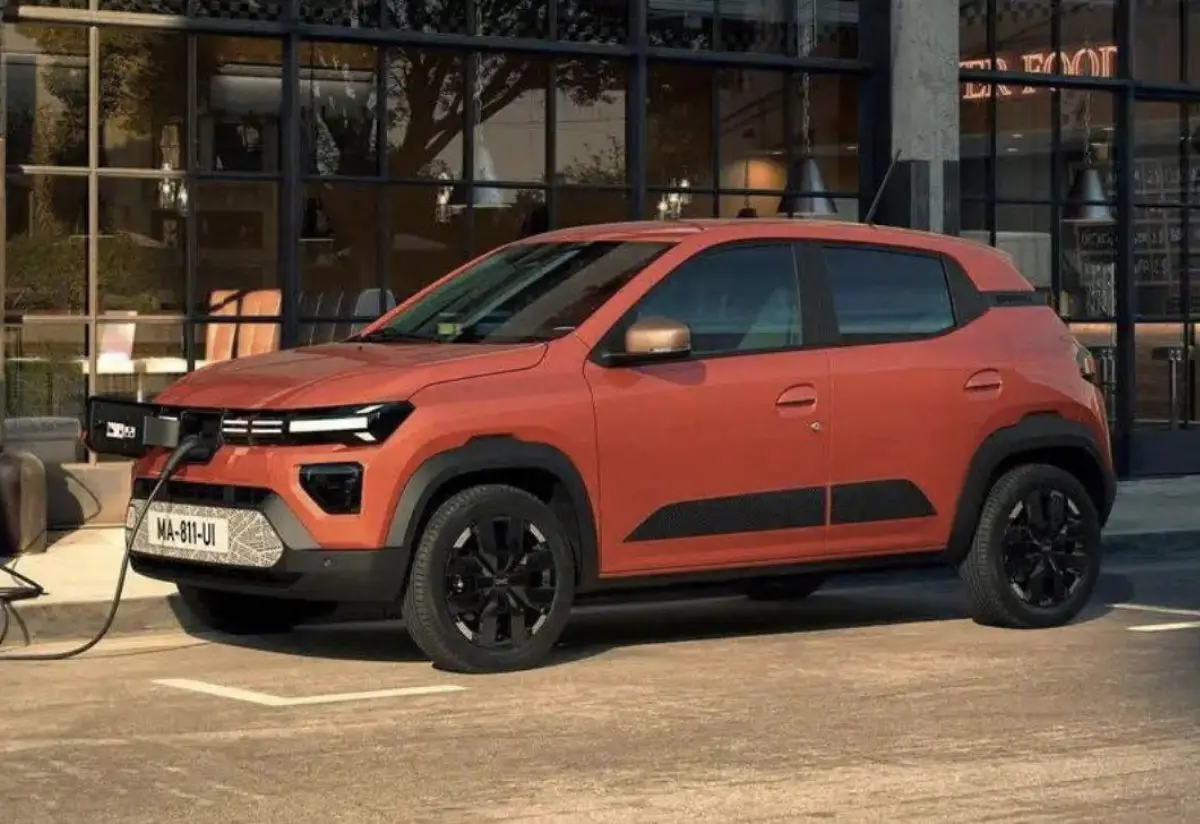
Tiago Rival: A few months after introducing the Dacia Duster, Renault Automobiles launched the Dacia Spring, a new hatchback. The new model, called the Renault Kwid EV, would be introduced in India based on the Renault Kwid. What then is the appearance of the Dacia Spring?
Dacia Spring OR Renault Kwid
Now, let’s examine the Dacia Spring’s relationship to the Renault Kwid before delving into its specifics. Under different badges, the Dacia Spring and the Renault Kwid are essentially the same vehicle. The Renault Kwid and the pre-facelift Dacia Spring have the same appearance. They have the same dimensions and are built on the same platform (CMF-A).
The powerplant options were the only distinction between the two automobiles. In India, the Dacia Spring was exclusively offered as an electric vehicle, however, the Renault Kwid was always offered with a petrol engine. Renault revealed its future intentions in India last month, mentioning the introduction of an A-segment electric vehicle in January 2024. That vehicle, which will probably be called the Renault Kwid EV, might be the Dacia Spring EV.
While You Care for Your Car, Care for Your Child’s Future Too 💖
A fun and educational book every parent should gift their kid.
 Get Kiddy Store Fortune Now
Get Kiddy Store Fortune Now
New Renault Kwid – Design

The Dacia Spring shares a lot of styling cues with the previously introduced Renault Duster. The front design is heavily influenced by that of its bigger sibling. It receives a DRL configuration similar to that of a Duster, with headlamps placed underneath. Additionally, the battery charging port has been placed in the middle of the front grille. There are several intriguing, seemingly closed components on the lower portion of the bumpers. For that matter, the front grille appears closed, indicating that it is an EV.
However, the side aspect is very similar to either the Indian-sold Renault Kwid or the existing Dacia Spring. Large black claddings on the side and squared wheel arches are present. Although the all-black alloy wheels have a nice appearance, the design is not EV-specific.

Approaching from the back, we notice a sizable black plastic cladding featuring bold Dacia letters. A rear wiper, LED tail lamps, and a standard antenna are additional components. Additionally, the front bumper’s design is applied to the lower bumper as well. Overall, the new Spring maintains the original model’s body shape, but it looks like it will draw in a lot of customers with its fresh look.
Interior

The new Duster’s interior design is also influenced by this theme. It appears that the touchscreen, central air conditioning vents, and steering wheel were taken from the dumpster. But don’t expect a lot of functions on the touchscreen—those will only be available on the more expensive Duster. The circular design language is maintained by the side AC vents. If we examine attentively, the new digital instrument cluster is also visible directly behind the steering wheel. Overall, the new Kwid’s interior exudes a rough charm.
Speaking of well-known features, the Spring EV has our cherished ADAS. Advanced emergency braking, lane-keeping assistance, and driver attention monitoring systems are examples of ADAS capabilities. For the most part, it comes with dual airbags as standard equipment; but, on the route to India, it may gain six airbags.
New Renault Kwid – Specifications

There are two different battery pack states available for the Spring EV. It comes with a 26.8 kWh battery pack that is said to have a 200 km range. The electric motors can produce between 43 and 65 horsepower, depending on the model you select. When it comes to charging, a 30kW DC charger may be used to charge the 63bhp variant while an 11kW AC charger can charge the 43bhp variant.
Launch Timeline
As of right now, Dacia has just revealed the new Spring EV’s design. Expect the car to arrive in India only after 2025, though. In India, the Tata Tiago EV will be challenged by this entry-level EV. But first, everyone’s eyes will be on the 2018 Renault Duster, which will be a significant business introduction since it marks the comeback of a former segment leader!

